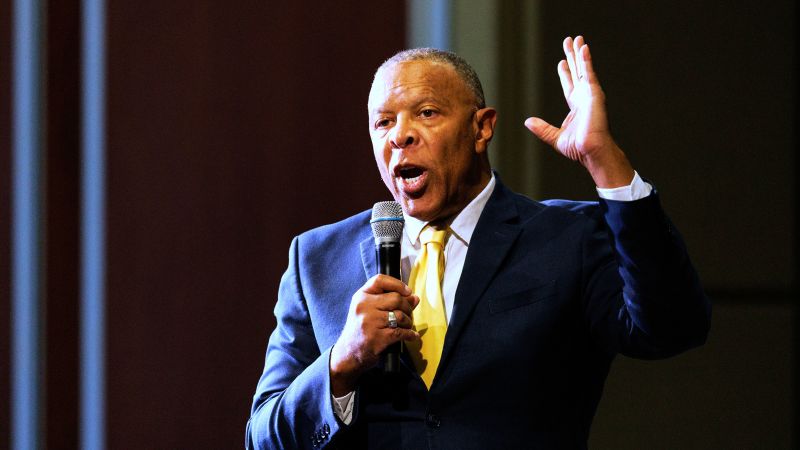In a historic event for Omaha, Jean Stothert, who has served as the city’s first female mayor, has conceded the recent mayoral election to her challenger, John Ewing. This election marks a significant turning point as Ewing is set to become Omaha’s first Black mayor. It reflects an evolution in the city’s political landscape, showcasing both representation and change within Nebraska’s largest city, which is home to about 25% of the state’s population.
The electoral race, unfolded on a Tuesday, presented Omaha voters with a crucial decision: to reelect Stothert for an unprecedented fourth term or to hand the reins to Ewing. The campaign primarily revolved around local issues such as necessary street repairs, public garbage services, and the revitalization of the city. However, as the campaign date approached, it became evident that broader national topics gained importance, including sentiments surrounding the Trump administration and ongoing debates about transgender rights, which highlighted the intertwining of local governance and national discourse.
When the clock struck midnight on election night, Stothert found herself trailing in the unofficial voter results, with a considerable gap of 11,000 votes. Following the election outcome, a clearly emotional Stothert acknowledged her loss: “I called John Ewing, and I congratulated him,” she stated. “John Ewing is inheriting tonight a great city, and we leave a strong foundation for the city that we love.” Her words exemplified a gracious concession, expressing gratitude for her time in office while exuding hope for Omaha’s future under Ewing’s leadership.
During her campaign, Stothert presented Omaha as a city flourishing with potential; she highlighted projects like a revitalized riverfront and the advancement of a streetcar line. “I have plans and can talk about them, and they are working,” she asserted to the Omaha World-Herald, articulating her vision for the city’s continuity and growth. Nevertheless, her opponent, John Ewing—who also serves as the county treasurer—differed sharply from her narrative. Ewing contended that the mayor had become disconnected from pressing city needs, citing issues such as filling potholes, boosting law enforcement presence, and expanding affordable housing. As he succinctly put it, “People just feel like she’s had her time, and it’s time for somebody new.”
Although the mayoral election is officially nonpartisan, the distinct party affiliations of both candidates were unmistakable; Stothert identified as a Republican while Ewing represented the Democratic Party. This differentiation was particularly significant due to Omaha’s unique position within Nebraska, a predominantly conservative state, where Democrats stand a viable chance of holding elected office, especially in urban areas.
As the election cycle progressed, a stark contrast emerged in campaign messaging. Despite the focus on fundamental municipal issues, both candidates shifted towards more partisan themes. Stothert aired advertisements that aimed to link Ewing to extreme viewpoints on controversial issues, such as a claim that Ewing supports policies allowing boys to compete in girls’ sports. Ewing, however, refrained from commenting on these assertions, clarifying that as county treasurer he has focused more on fiscal responsibilities rather than engaging in the transgender debate.
In a counter-campaign strategy, Ewing’s ads depicted Mayor Stothert alongside President Trump, suggesting that her affiliation with the former president’s administration might bring chaos rather than stability. “Let’s say no to the chaos and elect a mayor who will actually get things done,” Ewing’s campaign declared, further signaling his intent to present himself as a candidate of reason amidst political tumult.
As Omaha prepares for this pivotal leadership change, citizens await to see how Ewing’s administration will handle pressing community challenges and the broader issues of representation and equity within city governance. The outcome of this election reflects not only a shift in local leadership but also encapsulates the aspirations and concerns of a diverse electorate looking for responsive, guided governance.



